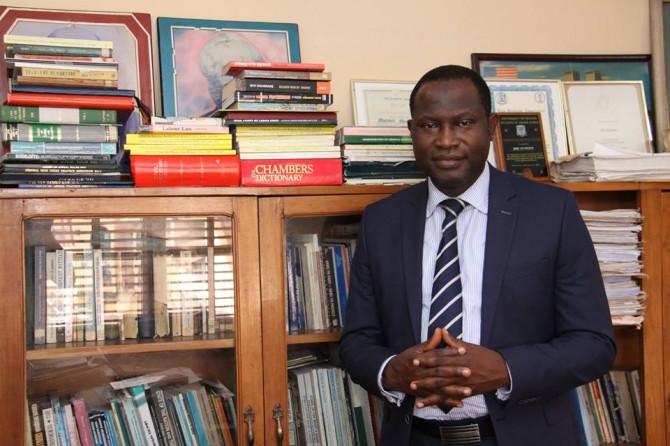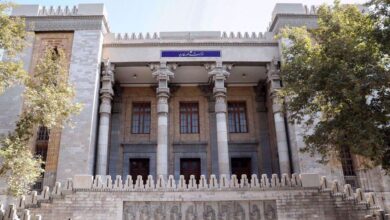The illegality of Senate’s summon on Prof Itse Sagay, By Jiti Ogunye

These are my closing views on the illegal and unconstitutional summons that the Senate of the Federal Republic of Nigeria threatens to issue on Professor Itse Sagay to compel him to appear before its committee on Ethics, etc.
The Senate as a Committee of the whole or through its committee lacks the power to invite or summon Professor Sagay to appear before it, having regards to the facts and circumstances of the invitation or summons. Professor Sagay had made a public statement deprecating the Senate for its ignoble role in rejecting Ibrahim Magu, the EFCC Chair, and by not confirming him. A scandalized Senate, believing it has been defamed now resorted to its committee hearing and summons to “bring Sagay to order”. These are the facts.
The combined reading of the provisions of sections 88 and 89 of the Constitution, and the relevant provisions of the Legislative Houses Powers and Privileges Act, as well as the Rules of the Senate, does not show that the Senate can exercise that power. The Senate is not interested in conducting any hearing in respect of its mandate to make a law or correct any defect in an extant law with a view to amending same. And the Senate is not intent on conducting a hearing or investigation to “expose corruption, inefficiency or waste in the execution or administration of laws within its legislative competence or in the disbursement or administration of funds appropriated by it “.
The malicious desire of the Senate was to harrass , intimidate and embarrass Professor Sagay for exercising his right to freedom of speech, his inalienable constitutional right. But legislative power is not granted by the Constitution to enable lawmakers, who ought not to be lawbreakers, to bully opponents who express public opinions and views that the legislative body finds unpalatable.
Under Section 88 of the Constitution, the Senate is empowered to direct or cause to be directed an investigation into any matter or thing with respect to which it has power to make laws; or the conduct of affairs of any person, authority , ministry or government department charged, or intended to be charged with the duty or a responsibility for executing or administering laws enacted by the National Assembly ; and disbursing or administering moneys appropriated or to be appropriated by the National Assembly.
To start with, the Senate has no power to legislate on defamation of character, a tort or civil wrong under the common law. Since it was its position that the Statement credited to Professor Sagay brought it and its members into disrepute, the remedies of its members, if any, lie in filing an action for libel in a court of law.
The conduct of Professor Sagay and his Presidential Advisory Committee against Corruption, also cannot be subject to Senate’s investigation. There is no law that has been made by the National Assembly, establishing the Sagay headed Committee, which the Committee or Sagay is executing or administering, to bring Sagay within the scope of the investigative or hearing or summoning powers of the Senate. The Sagay Committee is not established by any law.
The Senate or the National Assembly has also not appropriated any money , known to any Apprpriation Act, to the Sagay Committee that the Committee is dusbursing or administering to bring Sagay under the investigative powers of the Senate. Professor Sagay is not a public servant, as defined by the provisions of Section 318, the Interpretation Section of the Constitution.
A lot of persons have dubbed Professor Sagay a ‘ public servant’ just to justify the erroneous postulation that he is compellable to appear before a Senate committee. This categorisation is wrong . Sagay , certainly , is not in the Public Service of the Federation , as provided by the Constitution.
Chief Olusegun Obasanjo has serially lampooned the members of the National Assembly , calling the National Assembly, a ” den of robbers ” In answer to a question posed by a channels’ tv interviewer, as to why Chief Olusegun Obasanjo was not summoned to appear before the Senate for his adverse comments , if the Senate realized that it had the power to summon anybody to appear before it, the Spokeman for the Senate explained that OBJ was no longer a public servant when he made his disparaging statement, whereas , Sagay , in his opinion, is a Public Servant .
This assertion , we say without any fear of contradictions, is false. By virtue of his membership of the Council of State, an advisory body established under Section 153 of the Constitution, and the powers and composition of which are provided for under the Third Schedule , Part 1, Paragraph B, and sections 5&6 of the Constitution, former President Obasanjo is still a public servant. The National Assembly has the power to amend the Constitution , and it appropriates funds to the Council of State , through the Presidency every year. Section 318 defines ” public service of the Federation” to include ” c. member or staff of any commission or authority established for the Federation by this Constitution or by an Act of the National Assembly “. So OBJ was in the Public Service of the Federation when he called the National Assembly a gathering of thieves. So why , was he not summoned? The Senate lacked the gut to summon him , besides the fact that having regards to the constitiutional requirements for conducting an investigation or a hearing, the Senate lacked the powers to summon him .
The legislature does not have the power of our courts to summon any person, save those who have immunity under Section 308 of the Constitution, to appear before it. There is no infraction known as. ” contempt of the Senate ” like contempt of court. And generally under the law, no court can punish an alleged act of contempt not committed in the face of the court ( in facie curiae ) . That is in the courtroom or in the precincts of the court. Contempt committed in the face of the court can be punished summarily by the presiding judge (brevi manu). Any act of contempt of court ex facie curiae , that is not committed in the face of the court , cannot be punished summarily by the complaining judge. The judge may complain to the Attorney General, who may then file charges of contempt before another judge in the jurisdiction to guarantee the right of the alleged contemnor to fair hearing , as guaranteed under the fundamental rights provisions in the Constitution.
And this brings us to the final submission. The Senate cannot be allowed by the right to fair hearing provisions in the Constitution to drag Sagay before it’s committee. The Senate cannot be the accuser, the complainant, the prosecutor, the witnesses and the judge in its own cause.
So, folks , if anyone out there still has any lingering doubt about the wrongness of the Senate summons on Sagay, I am sorry , I can’t help clarify further. My self-imposed job is done on Facebook.
*Ogunye, a Lagos lawyer, wrote on his Facebook on Sunday.









